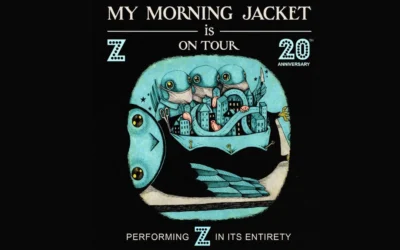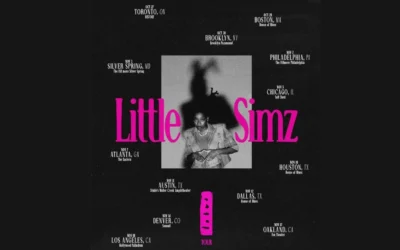The long-awaited “Fans First” Ticket reform legislation was announced on Friday morning, and as expected, the bill proposes heavy new regulations on ticket resale, while largely leaving primary ticket agencies untouched. The bill has been introduced to the senate by co-sponsors John Cornyn (R-TX), Amy Klobuchar (D-MN), Marsha Blackburn (R-TN), Peter Welch (D-VT), Roger Wicker (R-MS) and Ben Lujan (D-NM).
Among its provisions, the proposed bill would introduce new regulations at the federal level that would include rules requiring “all-in” ticket pricing and regulating website language and so-called “speculative” ticketing. Both mirror similar regulations introduced by the TICKET Act, which was passed out of committee by the House of Representatives already this week with support both event rights-holders, secondary ticketing marketplaces, and consumer organizations.
Beyond those regularly agreed-upon provisions, the “Fans First” Act would also include significant new rules requiring enormous consumer data to be shared back to the event operator and ticket seller by their competitors, and empower event operators and their ticketing companies to hold broad regulatory control over the industry by empowering them to weaponize their terms and conditions to cancel tickets sold by competing marketplaces and force the financial loss on those competitors.
“The current ticketing system is riddled with problems and doesn’t serve the needs of fans, teams, artists, or venues,” said Sen. Cornyn. “This legislation would rebuild trust in the ticketing system by cracking down on bots and others who take advantage of consumers through price gouging and other predatory practices and increase price transparency for ticket purchasers.”
Despite its name, the bill does not as yet have any support from fan advocacy organizations and only has support from primary market industry participants. It is backed primarily by organizations like the “Fix The Tix” coalition, which is made up of multiple venue and artist organizations. Fix the Tix also has effectively the same legislative priorities as Live Nation Entertainment and Ticketmaster – which is to say that their immediate and vocal support of this bill signals its largely permitting industry insiders to take tighter control of tickets, rather than levelling the playing field on behalf of the angry consumers.
This control, bordering on regulatory capture, is being proposed through the “Fans First” legislation despite the fact that the pressure on lawmakers to take action on ticketing was ignited largely due to the enormous failures of Ticketmaster’s sale process for Taylor Swift’s Eras Tour a year ago. It also comes amid increasing consumer anger about the ever-spiraling cost of event attendance in the era of surged “dynamic” ticket prices and deceptive ticket holdbacks that falsely imply ticket scarcity and sellouts to prop those prices up for consumers while sparking record-shattering profits for the giant corporation at the core of the global entertainment industry.
Consumer advocates who have pushed for better legislation dealing with the ticketing industry did not support the bill but offered the following statement:
“This week has had historic momentum for ticketing reform in Congress,” the Ticket Buyers Bill of Rights group says in a statement. “We welcome the introduction of the Fans First Act. It contains many important consumer protections and we thank Senators Klobuchar, Cornyn, Lujan, Blackburn, and Welch for their leadership. We look forward to working with the sponsors to make sure fans remain at the center of the legislative process.”
The full press release announcing the legislation is available below. TicketNews will continue to cover the ongoing developments of the ticketing legal landscape as it continues to unfold throughout the coming months.
WASHINGTON – U.S. Senators John Cornyn (R-TX), Amy Klobuchar (D-MN), Marsha Blackburn (R-TN), Ben Ray Luján (D-NM), Roger Wicker (R-MS), and Peter Welch (D-VT) yesterday introduced the Fans First Act, which would help address flaws in the current live event ticketing system by increasing transparency in ticket sales, protecting consumers from fake or dramatically overpriced tickets, and holding bad actors who engage in illegal ticket sale practices accountable:
“The current ticketing system is riddled with problems and doesn’t serve the needs of fans, teams, artists, or venues,” said Sen. Cornyn. “This legislation would rebuild trust in the ticketing system by cracking down on bots and others who take advantage of consumers through price gouging and other predatory practices and increase price transparency for ticket purchasers.”
“Buying a ticket to see your favorite artist or team is out of reach for too many Americans,” said Sen. Klobuchar. “Bots, hidden fees, and predatory practices are hurting consumers whether they want to catch a home game, an up-and-coming artist or a major headliner like Taylor Swift or Bad Bunny. From ensuring fans get refunds for canceled shows to banning speculative ticket sales, this bipartisan legislation will improve the ticketing experience.”
“Fans have become increasingly frustrated with how difficult it has been to obtain affordable tickets to see their favorite artists perform,” said Sen. Blackburn. “Bots are snatching up tickets and selling them for exorbitant prices on secondary markets, while some ticketing companies are selling speculative event tickets that don’t even exist. This bipartisan legislation builds upon my work to safeguard artists and their fans in the online ticket marketplace.”
“Live entertainment serves as a form of enjoyment and community for concert-goers and sports fans everywhere. However, the current ticketing system is limiting access to live entertainment, eroding consumer trust, and hurting fans and local venues,” said Sen. Luján. “That’s why I’m proud to join my colleagues in introducing the Fans First Act to ensure the sale of tickets is accessible to all consumers. This bill builds upon my work to improve ticket sale transparency by strengthening the FTC to enforce consumer protections. This is one step forward in making live entertainment accessible for all to enjoy.”
“Deceptive ticketing practices have become far too common. This bipartisan effort would result in more transparency and less price gouging,” said Sen. Wicker. “The pro-consumer legislation would benefit fans of sports, music, theatre, or any other kind of live entertainment.”
“Live concerts and sporting events are beloved American pastimes and pay dividends to our local economy. It’s important that every ticketholder can access these events without fear of exploitation by scammers,” said Sen. Welch. “The Fans First Act will help protect American consumers from the financial harms of price gouging by banning speculative tickets and deceptive URLs, in addition to requiring all-in pricing be listed up front. This legislation will strengthen consumer protection by establishing refund requirements for customers impacted by fraud, helping to ensure that everyone can enjoy live events without worrying about the security of their ticket.”
Background:
The current ticketing system hurts fans, communities, sports teams, artists, and venues, many of which are small businesses. Fans are getting boxed out by bots, unauthorized resellers, and big conglomerates when they purchase tickets or need to resell a ticket. These bad actors have the ability to quickly purchase tickets on a large scale and then sell them on the secondary market at a higher cost with huge processing fees. This generates a profit for entities that have no stake in the event, show, or performance that is usually much higher than what the performer, artist, or venue receives.
Often, consumers unknowingly pay more for tickets on secondary markets even when a ticket may be available at face value directly from the venue due to a lack of transparency from these sellers. Unauthorized resellers also sell speculative or “spec” tickets that don’t exist and face no accountability if the ticket purchased isn’t actually delivered to the buyer. This legislation will work in concert with other efforts to reform the live events ticketing process.
The Fans First Act would help address the following areas of reform in the current ticketing system:
Ticket Sales Transparency:
• Requires all live event ticket sellers and resellers to disclose:
o The total cost of the ticket, including fees, when the fan initially selects a ticket for purchase;
o A breakdown of the ticket cost;
o Clear terms and conditions of purchase;
o Which seat or section they are selling in to avoid ticket misrepresentation;
o And whether or not they are the original seller.Consumer Protection:
• Strengthens the Better Online Ticket Sales (BOTS) Act, signed into law in 2016, to further prohibit the use of bots to purchase tickets online.
• Requires sellers and resellers to provide proof of purchase to consumers within 24 hours of purchase.
• Requires sellers and resellers to refund consumers the full cost of the ticket when events are canceled.
• Requires a Government Accountability Office (GAO) study to further study the marketplace and make recommendations.Stopping Bad Actors:
• Imposes civil penalties on resellers engaging in illegal ticket sale practices, creates a reporting website for fans to file complaints, and tasks the Federal Trade Commission (FTC) and state attorneys general with enforcement.
• Prohibits the sale of a ticket that the reseller represents they possess but actually do not, known as a speculative or “spec” ticket.
• Prevents the use of deceptive websites and bad actors masquerading as legitimate sellers.
• Requires reporting of BOTS Act violations from ticketing companies to the FTC and requires the FBI to share ticketing violations with them.This legislation is endorsed by the Fix the Tix Coalition, National Independent Venue Association, Seattle Theatre Group, Recording Academy, Recording Industry Association of America, National Independent Talent Organization, Eventbrite, Performing Arts Alliance, North American Performing Arts Managers and Agents, International Association of Venue Managers, Songwriters of North America, Americans for the Arts, Americans for the Arts Action Fund, Future of Music Coalition, Artists Rights Alliance, Music Managers Forum, Screen Actors Guild-American Federation of Television and Radio Artists, and Association of Performing Arts Professionals.




